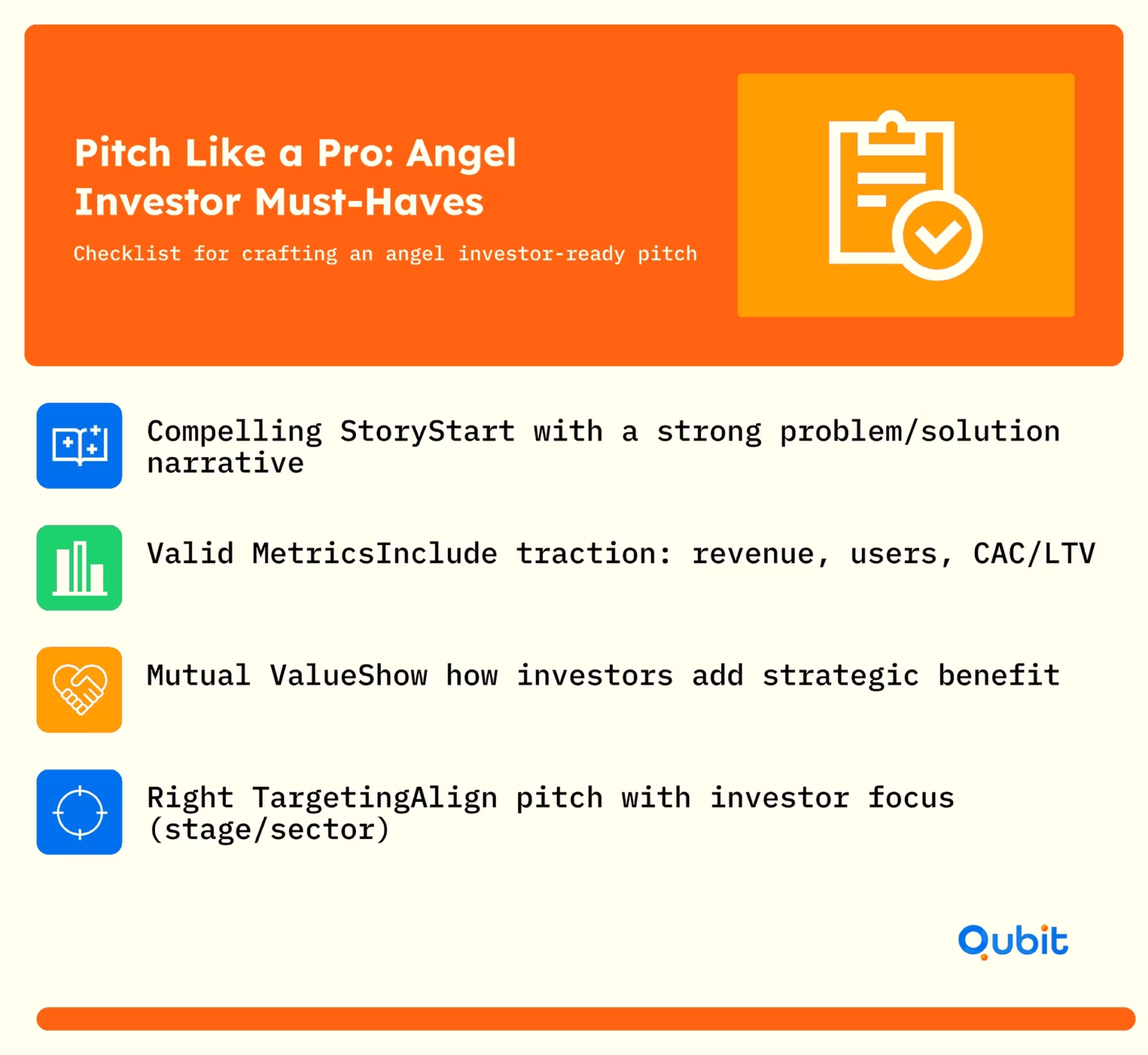Securing funding is often the first major hurdle for startups aiming to scale their ideas into successful ventures. Angel investors play a pivotal role in this process, offering not just capital but also mentorship and industry connections. This guide explores the best websites where startup investors can be found, helping entrepreneurs connect with the right funding opportunities.
Your exploration of funding opportunities begins with how to find investors for startups, which offers a comprehensive framework for understanding the broader investor landscape. From identifying platforms that specialize in angel investments to understanding effective pitch strategies, this article is designed to equip you with actionable insights.
Whether you're seeking individual investors or exploring venture capital websites, this guide will help you navigate the options and make informed decisions.
The Best Platforms for Finding Angel Investors
Finding the right angel investor platform can be a game-changer for startups seeking funding. With a variety of platforms tailored to different industries, funding stages, and geographic regions, entrepreneurs can access a wealth of opportunities to connect with investors who align with their vision. Below, we explore some of the best platforms for startup investors, highlighting their unique features, success metrics, and actionable insights.
1. AngelList: A Hub for Startup Investors
AngelList stands out as one of the most comprehensive platforms for connecting startups with angel investors. With over 5,000,000+ members, including investors, startups, and employers, it offers a centralized hub for funding opportunities. Startups can use the AngelList Tool to search and filter investors by location, industry, and network connections, making it easier to find the perfect match.
One of AngelList’s most notable features is its Syndicate Model, which allows investors to pool their resources and fund startups with a minimum investment of $1,000. This model has led to over 40 acquisitions and funding for more than 2,000 startups, showcasing its effectiveness in driving success. For a deeper dive into how AngelList operates, consider linking to their syndicate investment model.
2. WeFunder: Crowdfunding for Startups
WeFunder specializes in crowdfunding, enabling startups to raise capital from a diverse pool of investors. With over $616 million in funding distributed to 2,700+ founders, it has proven to be a powerful platform for early-stage companies. Startups can showcase their ideas to a broad audience, gaining both financial support and valuable exposure.
3. Republic: Equity and Cryptocurrency Offerings
Republic attracts a diverse pool of investors by offering both equity and cryptocurrency investment options. This flexibility makes it an appealing choice for startups operating in innovative sectors. The platform is designed to cater to companies at various funding stages, ensuring that businesses can find the right investors regardless of their growth phase.
4. Gust: Streamlining Investor Communications
Gust is a platform that goes beyond connecting startups with investors—it also simplifies the administrative side of fundraising. With tools for CRM, investor communications, legal document access, and community support, Gust ensures that startups can focus on growth rather than paperwork.
Actionable Insights for Startups
Startups can maximize their chances of success by filtering platforms based on industry, funding stage, and geography. For instance:
- Industry: Platforms like AngelList allow startups to connect with investors who specialize in specific sectors, ensuring alignment with their business goals.
- Funding Stage: Early-stage startups may benefit from crowdfunding platforms like WeFunder, while growth-stage companies might find Republic’s equity offerings more suitable.
- Geography: Many platforms, including Gust, enable startups to search for investors within their region, fostering local connections and mentorship opportunities.
Emerging Trends in Angel Investing Platforms
The rise of digital ecosystems has transformed traditional fundraising methods. Startups increasingly rely on aggregated angel investing platforms to simplify funding searches and gain strategic mentorship. This trend underscores the importance of choosing the right platform to meet specific business needs.
For startups seeking structured methods to identify suitable investors, exploring investor mapping techniques for startups can provide actionable strategies to visualize and pinpoint potential matches.
How to Create a Winning Angel Investor Pitch
Securing funding from angel investors requires more than just a great idea—it demands a pitch that resonates with their goals and expertise. A well-crafted pitch deck is your most powerful tool, combining validated market data, clear financial projections, and strategic insights to showcase your startup’s potential.

1. Build a Pitch Deck That Tells a Story
Your pitch deck should be more than a collection of slides; it should narrate the journey of your startup. Begin with a compelling problem statement that highlights the market gap your solution addresses. Follow this with validated market data that demonstrates demand and growth potential. Investors appreciate numbers, so include metrics that underline your startup’s traction, such as user acquisition rates or revenue growth.
Financial projections are equally critical. Present realistic forecasts that align with your business model and market trends. Avoid overly optimistic figures; instead, focus on achievable milestones that reflect your understanding of the industry.
2. Highlight the Value Angel Investors Bring
Angel investors are not just financial backers—they are mentors, advisors, and connectors. Emphasize how their expertise can help your startup grow. Whether it’s strategic advice, introductions to key industry players, or guidance on scaling operations, showcasing the mutual benefits of their involvement can make your pitch more appealing.
3. Use Metrics and Case Studies to Strengthen Your Pitch
Incorporating success stories from top angel platforms can add credibility to your pitch. For instance, referencing startups that secured funding and scaled successfully through angel investors demonstrates the potential impact of their support. Utilize case studies and metrics to illustrate how similar ventures have thrived, making your pitch relatable and grounded in real-world examples.
4. Target the Right Investors
Tailoring your pitch to the right audience is essential. Angel investors often focus on specific industries or stages of growth. To refine your targeting strategy, explore resources on how to segment investors. This ensures your pitch aligns with their interests and expertise, increasing your chances of securing funding.
By combining a compelling narrative, validated data, and a focus on mutual benefits, you can create a pitch that stands out to angel investors.
Strengthen Your Business Foundation Beyond Investor Outreach
Securing funding from startup investors requires more than just reaching out to potential backers. While investor outreach is a critical step, it must be supported by a solid business foundation to ensure long-term success.
A robust business plan serves as the cornerstone of this foundation. It should clearly outline your company’s vision, goals, and operational strategies, offering investors a transparent view of your roadmap. Equally important are detailed financial models that demonstrate your startup’s profitability potential and scalability. These models not only instill confidence in investors but also help you make informed decisions as your business grows.
Another vital element is a sustainable go-to-market strategy. This strategy ensures that your product or service reaches the right audience effectively, creating a pathway for consistent revenue generation. Without a clear plan for market entry and growth, even the most innovative ideas can struggle to gain traction.
Professional mentorship can also amplify your efforts. Guidance from seasoned experts provides valuable insights into refining your pitch, structuring deals, and addressing investor concerns. Combining mentorship with a strong business strategy creates a compelling case for funding.
Extra Tools to Help You Succeed in Startup Funding
While angel investing is a popular choice, startups can benefit from alternative methods such as crowdfunding, venture capital, bootstrapping, and accelerator programs. These options provide flexibility and cater to varying business models and growth stages.
Crowdfunding platforms, for instance, allow startups to connect directly with online investors for startups, enabling them to raise funds while building a community of supporters. Venture capital websites offer access to professional investors who can provide substantial funding and strategic guidance. Bootstrapping, on the other hand, emphasizes self-reliance by utilizing personal savings or reinvesting profits to grow the business. Accelerator programs combine funding with mentorship, helping startups refine their strategies and scale effectively.
To streamline your fundraising journey, it’s essential to utilize supplementary tools like guides and mapping resources. A methodical guide on how to build an investor map presents you with a step-by-step approach to organizing and evaluating funding prospects. This structured approach can help startups identify the right investors and tailor their pitches accordingly.
Exploring these tools and resources not only enhances your funding strategy but also strengthens your financial pitch and planning. By diversifying your approach, you can increase your chances of securing the capital needed to bring your vision to life.
Conclusion
Securing startup funding requires a blend of strategic planning and effective communication. Throughout this article, we’ve explored key strategies for engaging angel investors, crafting compelling pitch decks, and utilizing data-driven tools to refine your approach. Combining a robust business strategy with targeted investor outreach ensures your startup stands out in competitive funding environments.
Case studies and benchmarks further highlight the importance of aligning your pitch with investor expectations, showcasing both innovation and scalability. By integrating these insights, startups can build a foundation for long-term success.
If you're looking for expert support in securing startup funding, we at Qubit Capital can help through our Fundraising Assistance service. Contact us today to elevate your funding strategy.
Key Takeaways
• Angel investor platforms offer a diverse range of funding opportunities for startups.
• Combining a compelling pitch deck with thorough market validation is essential for attracting investors.
• Comparative metrics and case studies demonstrate the strengths of platforms like AngelList and WeFunder.
• Leveraging internal resources streamlines the process of mapping and targeting the right investors.
• Qubit Capital’s services provide targeted support to help startups achieve their funding objectives.
Frequently asked Questions
What is the best website for angel investors?
AngelList is widely recognized as one of the top platforms for angel investors. With over five million members, it offers robust networking capabilities and access to promising startups.


 Back
Back



